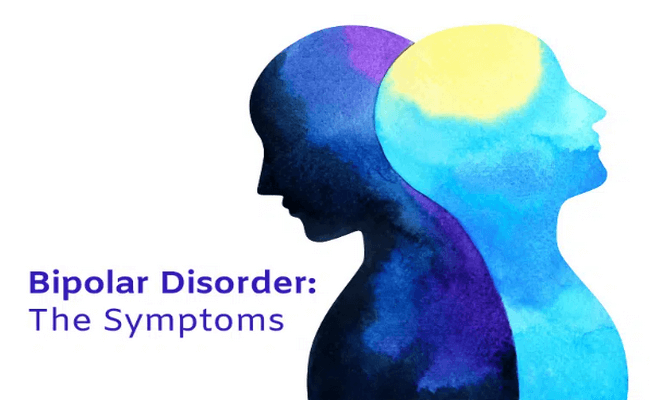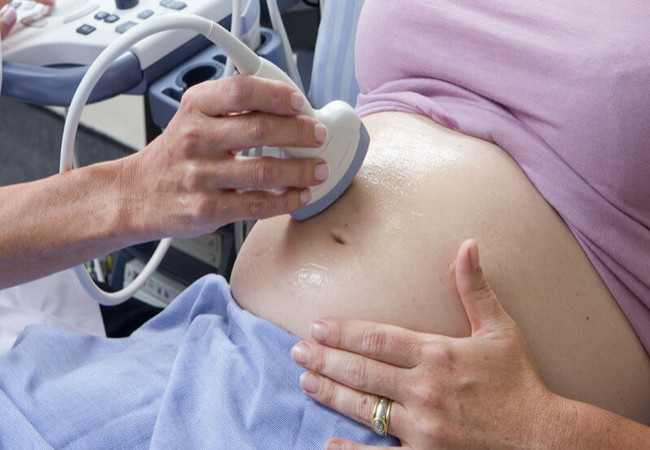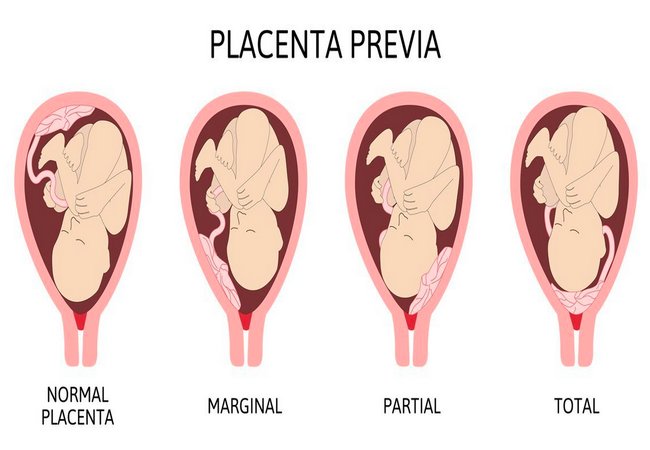Bipolar Disorder: Sign, Symptoms and Management
What Do You Mean by Bipolar Disorder?
It is a brain disorder that cause unusual shifts in a person’s mood energy and ability to function. It is a long term illness which has to be carefully managed throughout a person’s life’.

Sign and Symptoms of Bipolar Disorder:
Clinical Features of Bipolar Disorder:
Manic Episode:
1. Affect/moods:
- Euphorically elevated, overly happy, outgoing.
- Irritable mood, agitation, jumpy, “wired”.
- Inappropriately joyous.
2. Behaviors:
- Increased goal-directed activity.
- Excessive involvement in high-risk activities.
- Impulsivity.
- Restlessness.
- Energized behavior.
- Clothing may look disorganized or disheveled.
- Increased psychomotor changes.
- Religiosity.
- Decreased need for sleep.
- Behavior may become aggressive, intrusive, or combative.
- No patience or tolerance for others.
- Increased talkativeness or rapid, pressured speech.
You can read: Types, Etiology and Management of Bipolar Disorder
3. Thoughts:
- Inflated self-worth,
- Expansive and optimistic thinking,
- Flight of ideas and/or loose associations,
- Racing thoughts and feeling that their minds are active.
4. Perceptions:
- Approximately, three fourths have delusions.
- Manic delusions reflect perceptions of power, prestige, position, self-worth, and glory.
- Some have auditory hallucinations and delusions of persecution.
Hypomanic episode:
1. Affect/moods:
- Up,
- Expansive,
- Irritable.
2. Behaviors:
- Busy,
- Active,
- Over involved,
- Increased energy,
- Increase in planning and doing things,
- Others notice the increase in his or her activity but the patient often denies that anything about him or her has changed.
3. Thoughts:
- Optimistic,
- Future focused,
- Positive attitude.
4. Perceptions:
- Patients with hypomania typically do not experience perceptual changes.
MDE:
1. Affect/moods:
- Sadness dominates affect and is often blunted or flattened,
- Feeling sad, depressed, empty, and isolated,
- Hopelessness,
- Helplessness,
- Worthlessness,
- Easily overwhelmed.
2. Behaviors:
- Poor grooming,
- Increased tearfulness,
- Poor eye contact or no eye contact,
- Psychomotor changes: moves slowly or moves very little, with psychomotor retardation.
- Social withdrawal, shyness, or increase in social anxiety.
- Decreased interest in sexual activity and/or difficulty enjoying sexual activity.
- Somatization (e.g., increase in physical or somatic complaints without objective, identified able cause).
- Difficulty with attention and concentration.
- Appetite disturbances (increase or decrease).
- Sleep disturbance.
- Decrease in energy and increase in fatigue regardless of amount of sleep.
- Attempts at suicide.
3. Thoughts:
- Increased thoughts of death or morbid thoughts, and/or suicidal thoughts or specific plans for committing suicide.
- Thoughts that reflect their sadness (negative thoughts about self, world, and future).
- Nihilistic concerns.
- Short-term memory deficits.
- Increase in worry and rumination; also referred to as brooding.
- Inappropriate guilt.
Management of Bipolar Disorder:
Acute Treatment:
- The primary goal of the acute phase is to manage acute mania, hypomania, or depressive episodes, and associated safety-risk issues.
- Diagnostic tests should be performed to rule out potential medical etiologies for mood symptoms, especially if this is the first episode of mạnia, hypomania, mixed mood symptoms, or depression.
More questions related to this article:
- Define bipolar disorder.
- What is bipolar disorder?
- How will you identify a case of bipolar disorder?
- What are the sign and symptoms of bipolar mood disorder?
- Write down the clinical features of bipolar mood disorder.
- Give the management of bipolar disorder.
- Describe the management of bipolar disorder.











